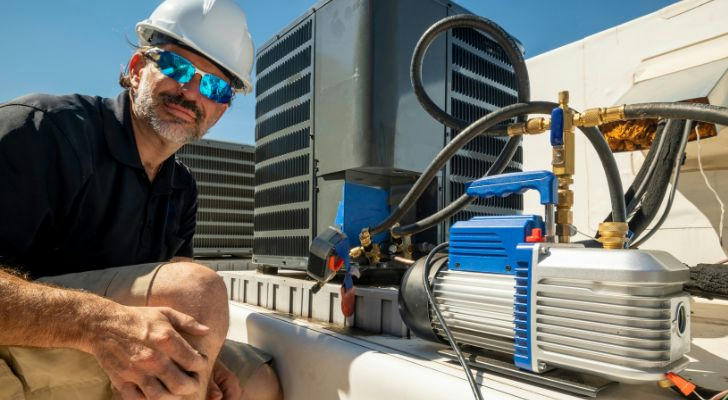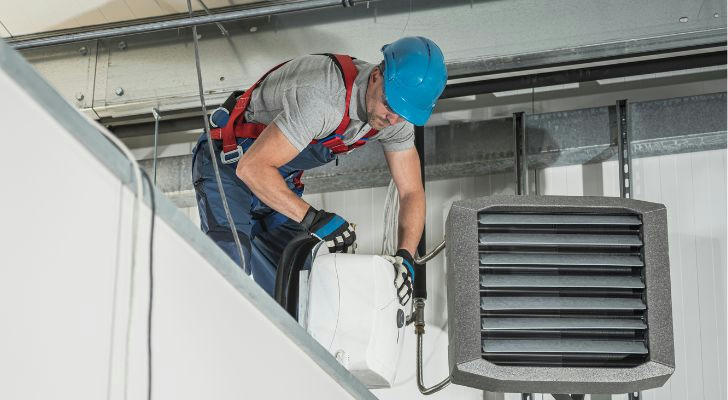What You’ll Learn in an HVAC Course
A career in Heating, Ventilation, and Air Conditioning (HVAC) offers strong job prospects, good income potential, and hands-on work. According to the U.S. Bureau of Labor Statistics (BLS), employment of HVAC technicians is projected to grow 6% from 2022 to 2032, adding over 23,000 new jobs during this period. If you're thinking about joining the skilled trades, HVAC is a practical and future-ready choice.
But what exactly do you learn in an HVAC training course? Here’s a detailed breakdown, backed by data and typical curriculum outlines from accredited trade schools and community colleges.

1. HVAC System Fundamentals
Most programs begin with core technical concepts that explain how heating and cooling systems work. Expect to cover:
- Basic thermodynamics and heat transfer
- Refrigeration cycle and components (compressor, condenser, expansion valve, evaporator)
- Differences between residential and commercial systems
- Equipment types: split systems, packaged units, ductless mini-splits
📚 Source: National Center for Construction Education and Research (NCCER) HVAC Level 1 Curriculum
2. Electrical Systems and Safety
Because HVAC units involve complex electrical components, training includes:
- Understanding wiring diagrams, relays, and capacitors
- Proper use of multimeters and electrical testing tools
- National Electrical Code (NEC) basics relevant to HVAC systems
- Safety protocols: lockout/tagout, personal protective equipment (PPE)
🔌 Supported by OSHA standards and EPA Technician Certification Guidelines
3. Refrigeration and EPA Certification Preparation
Handling refrigerants legally in the U.S. requires EPA Section 608 Certification. HVAC courses typically cover:
- Safe handling, recovery, and recycling of refrigerants
- Identifying types of refrigerants and their environmental impact
- Leak detection and repair procedures
- Preparing for the EPA 608 exam, a legal requirement for most HVAC jobs
✅ Required by U.S. Environmental Protection Agency (EPA)
📚 Study guides: ESCO Institute, Mainstream Engineering
4. Heating Systems and Fuel Sources
You’ll learn how to install and service systems that provide heat using various fuel types:
- Gas and electric furnaces
- Heat pumps and hybrid systems
- Combustion analysis and ventilation
- System efficiency and AFUE (Annual Fuel Utilization Efficiency) ratings
🔥 Referencing: U.S. Department of Energy (DOE) HVAC Efficiency Standards
5. Air Distribution and Indoor Air Quality
Proper airflow and clean air are essential. This module focuses on:
- Duct design and airflow balancing
- Use of tools like manometers and air flow hoods
- Indoor air quality (IAQ) factors: filters, humidifiers, UV systems
- Codes related to ventilation and energy recovery systems
🌬️ ASHRAE (American Society of Heating, Refrigerating and Air-Conditioning Engineers) standards apply
6. System Diagnostics and Troubleshooting
Using simulation labs or real-world setups, students practice diagnosing issues such as:
- Compressor failures, thermostat issues, refrigerant leaks
- Reading pressure-temperature charts and superheat/subcooling
- Using digital gauges and diagnostic apps
🔧 Practical experience often mirrors the NATE Core & Specialty exam content

7. Soft Skills and Workplace Readiness
HVAC techs also interact with homeowners and contractors. Programs may include:
- Communication and customer service training
- Writing work orders and documenting repairs
- Introduction to scheduling software and mobile field tools
📈 Many employers now list “strong communication skills” as a hiring priority per 2023 HVACR Workforce Development Foundation report
8. Licensing, Certification & Career Support
Most states require licensing after training, usually through an exam. Your course may support:
- EPA Section 608 Certification
- Preparation for NATE (North American Technician Excellence) exams
- Career services: resume prep, mock interviews, job placement
🎓 Top programs are accredited by HVAC Excellence, PAHRA, or partner with unions for apprenticeships
Final Thoughts
Enrolling in an HVAC course isn't just about learning how to fix air conditioners—it's about gaining a lifelong trade with career mobility. With strong industry growth, rising demand for energy-efficient systems, and evolving technologies, trained HVAC professionals are well-positioned for stable, well-paying jobs.
If you're ready to step into the trades, start by exploring EPA-recognized programs, community colleges, or union apprenticeships in your area. The skills you gain today could power the buildings of tomorrow.
